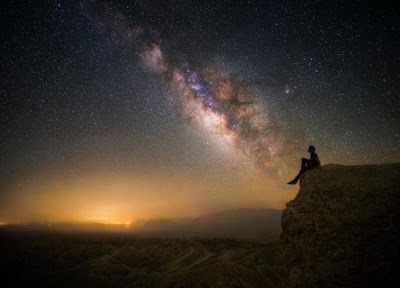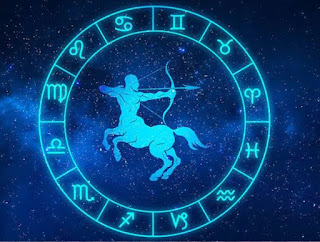Isn't it so peculiar how most of us, irrespective of being an ardent astrology believer or not, get attracted to the zodiac section of magazines or newspapers? Often we go through sections telling about our zodiac signs and only due to being born in a certain month of the calendar, we tend to quickly jump on to our respective zodiac and then start relating it to our own selves.
But have you ever tried to really feel and relate that to yourselves completely? Or is it just a psychological backdrop because you know it is your zodiac?
Why you and another person born in the same month or even the same date, are so different from each other?
Why there are many times your personality and character or traits simply don't match with what's being written concerning the specific zodiac?
The answer to all these questions is both simple yet complex.
This is because of the fundamental difference between
The Vedic Astrology and The Western Astrology.
- As I have already mentioned in my previous article, Vedic astrology has its origin since the times of Rig Vedas and its roots go back thousands of years, more than 5000 years ago at least. While Western astrology can be traced back to life and intellectual development in ancient Greece- influenced by Egyptian civilisation of Greeks and Babylons 2000 years back.
- Vedic astrology is based on the Sidereal zodiacs (constellation) and is a cosmic based astrology constituting the Dasha system, 9 planets, 12 zodiacs, 27 lunar constellations (nakshatras) with the span of 13 degrees and 20 minutes, whereas Western astrology is the Sun based astrology which relies on Tropical zodiacs (seasonal).
- In Vedic astrology, the actual motion of all the planets in the cosmic space is considered. While in Western astrology, Sun is the main body and it doesn't take this fact into consideration that Earth never comes back to the same position after its one complete revolution.
- Vedic astrology chooses a starting point for the beginning of Aries and proceeds in equal 30 degrees sections for subsequent signs, whereas, Western astrology deals with the relationship of the Sun with the Earth's tropics i.e. the onset of 4 seasons when Sun crosses the equator (the first day of the spring season in the northern hemisphere) marks the beginning of Aries Sign.
- Vedic astrology is far more precise and covers all areas and domains of one's life. Western astrology is not that level precise and based more on psychology and personal traits of the individual.
- In Vedic astrology, the house and sign in which the Sun sits is your Sun sign i.e. your actual self and soul. In Western astrology, your date of birth decides your Sun sign which is so generic in nature and applies to everyone born in the month concerned and hence vague.
- Vedic astrology gives a lot of importance to the Moon sign and divisional charts, along with nakshatras and Dasha system owing to its accuracy and precision to future prediction. Western astrology doesn't take this into consideration at all.
- In Vedic astrology, each planet can be associated with another planet in the given house through aspects and conjunctions with main 7th aspect. Jupiter, Saturn and Mars have additional aspects which we will be dealing in subsequent posts. Western astrology has aspects as conjunction, sextile, square, trine, and opposition with less than 10 degrees orbs.
- Uranus, Neptune and Pluto have negligible roles to play in the Vedic astrology whereas, Western astrology has significant consideration of these for the purpose of predictions.
- Combustion of planets plays a significant role in chart analysis in the Vedic astrology while Western astrology doesn't take this as a major consideration factor.
So, guys, these are just a few differences out of many others which I will be dealing in my subsequent posts as and when required.
Good day !!
YOU MAY ALSO REFER:
https://www.thehailphoenix.com/2019/07/the-vedic-astrology.html?m=1
Good day !!
YOU MAY ALSO REFER:
https://www.thehailphoenix.com/2019/07/the-vedic-astrology.html?m=1







Very interesting 👍
ReplyDeletethank you!
ReplyDeleteThis comment has been removed by the author.
ReplyDeleteLoved it 👌
ReplyDeletegreat!
ReplyDelete